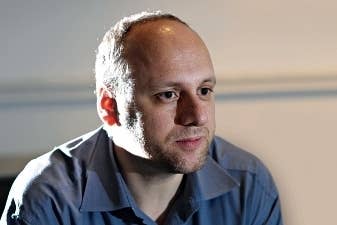Cage: The future of games is meaning
Quantic Dream CEO on how better stories can make games more mainstream
The CEO of Quantic Dream has called on the industry to bring more meaning to its games during his talk at GDC Europe in Cologne.
"I believe that the future of games will be meaning," said David Cage.
"I hope that there is a future for video games that will have more meaning and that will become - yes we should dare to say it - some kind of art form."
"We are a still a niche, a big niche, but still a niche"
This meaning, he believes, will help games find the wider audience that has so far eluded them.
"In this industry we think that we are mainstream, that we're appealing to everyone out there. Actually, when you think about it, films are appealing to a wide market, TV is appealing to a wide market, it's not the case with video games yet. We are a still a niche, a big niche, but still a niche."
He said that the biggest challenge wasn't convincing gamers that this was the case, but convincing publishers, developers and the press that creating meaning in their games was important.
Merging cinematography and interactivity also presented challenges, he explained, as did the massive volumes of assets created by the process. As an example he pointed to Beyond: Two Souls, which currently has 2000 pages of script, a year's worth of shooting on set, 20,000 unique camera shots, and 50 hours of unique animations.
"I think we are getting closer and closer to photorealistic rendering," he said of his work with PlayStation 4.
"I don't know if we will reach a point during this cycle where you won't be able to tell the difference between a film and a game, but I know we're going to get really close to that during this cycle."

